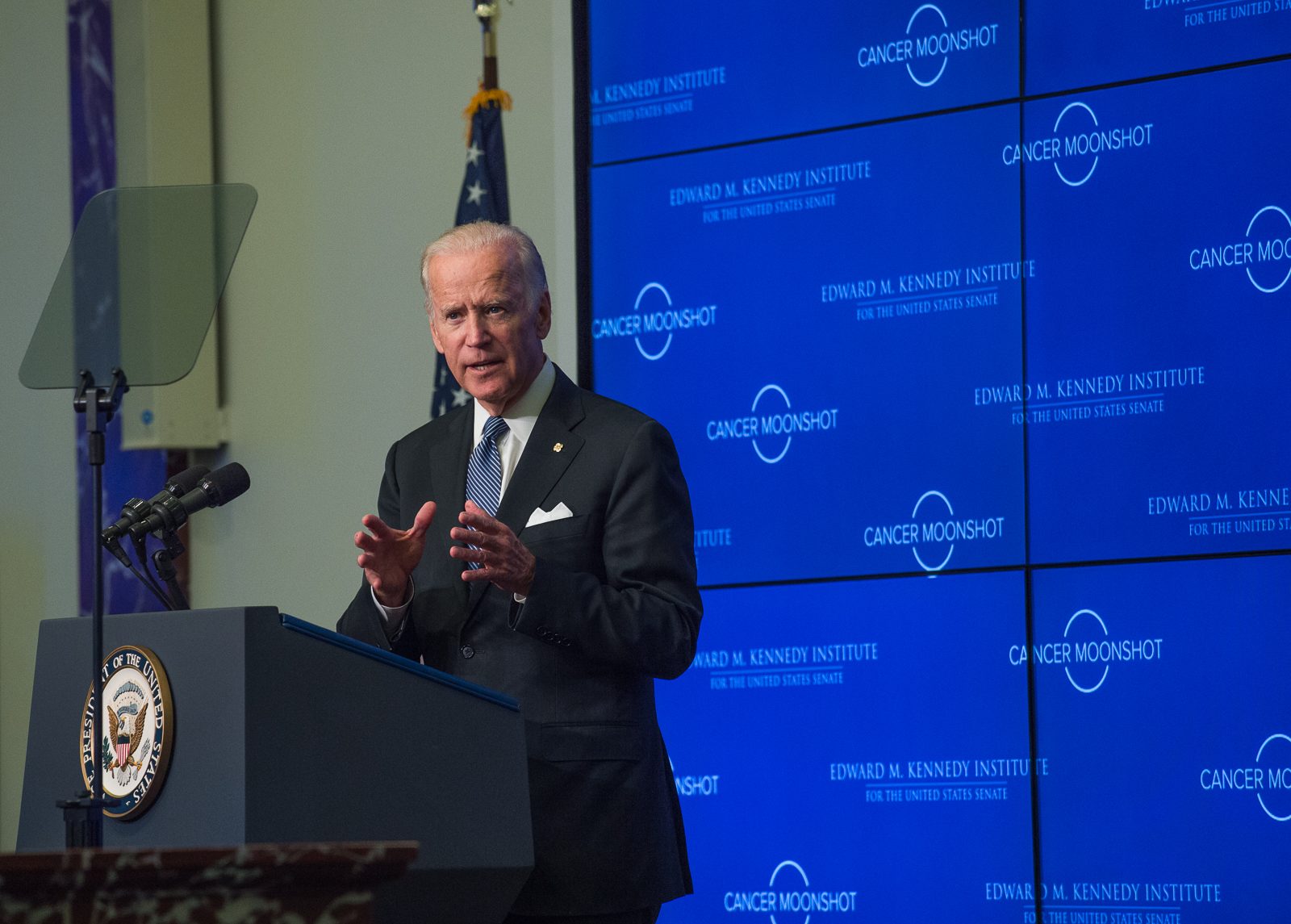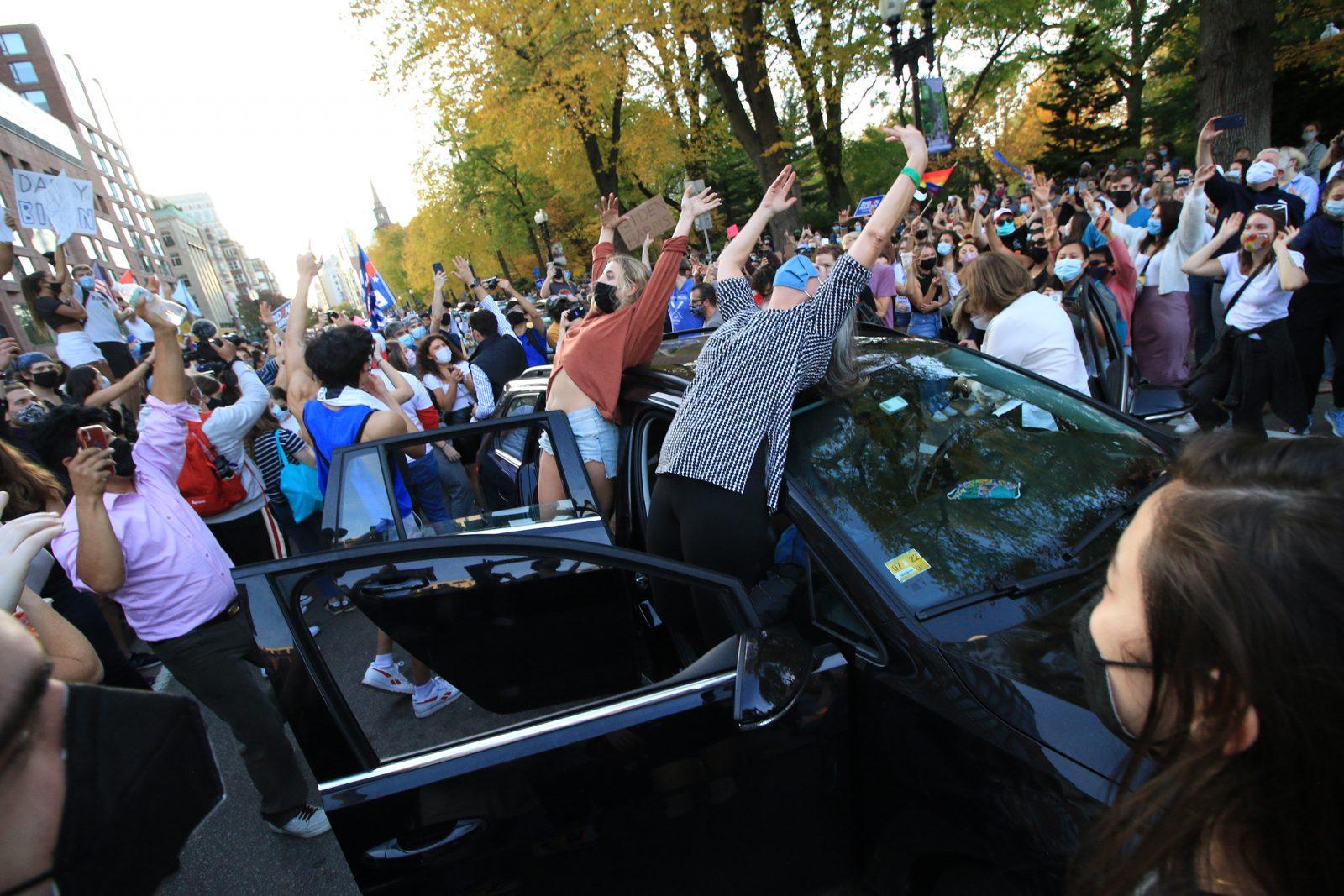Massachusetts marijuana law reform supporters continue to fight back against actions to take away gains they made last November with the passage of Question 2, the law decriminalizing marijuana.
State Sen. Scott Brown (R-Wrentham) represents some of those actions with a bill filed in January that would punish the possessor for any amount of marijuana in the passenger compartment of a motor vehicle with a minimum fine of $1,000 and a loss of driving privileges for 90 days, according to the bill.
Twenty activists protested the bill outside a Brown dinner fundraiser on March 31 in response to Brown’s lack of concern for the 65 percent of voters who supported Question 2, Massachusetts Cannabis Reform Coalition board of directors member Michael Crawford said. Question 2 decriminalized possession of up to an ounce of marijuana, making it a civil penalty with a fine of $100 in November.
Brown walked past the protest and did not respond to the activists, Crawford said.
Brown’s bill ignores the majority vote in Massachusetts, he said.
‘I think the bill disregards the voice of the people 100 percent,’ Crawford said.
The bill was filed at the request of Wellesley Police Chief Terry Cunningham, Wellesley Deputy Chief of Police William Brooks III said.
MassCann founder Steven Epstein said Brown filed the bill solely because he had the police chief as a sponsor.
‘He filed these reports because he had a sponsor,’ Epstein said. ‘Sen. Brown didn’t expect any sort of response to the bill and now he is embarrassed.’
Brooks said there were many procedural problems with Question 2.
‘According to the new law, a kid under 21 with an open container of alcohol gets arrested, but a kid with marijuana doesn’t,’ Brooks said.
Brooks said driving under the influence of marijuana is a problem, but it is difficult to judge the impairment of someone who has been using marijuana compared to someone who has been drinking.
There is also misconception about Question 2 and how it affects a person’s record, Brooks said. Before November’s legislation if a newspaper asked police for a list of those charged with marijuana possession the police department could not have legally disclosed it, he said.
‘Once Question 2 goes into effect, a police department will be required to disclose such information because it will become a public record under Massachusetts law,’ he said. ‘So now we are left with a law that makes no sense.’
Brown was unavailable for comment after multiple attempts.





























































































































null • Aug 3, 2010 at 2:21 pm
I want what Deputy Chief Brooks is smoking, if he thinks disclosure of marijuana citation was prohibited by past law and is mandatory under the new decriminalization policy!<p/>It’s exactly the opposite! Arrest records are public! We have the Criminal Offender Registry, or CORI, that allows employers, schools, etc., to see what you may have been arrested for in the past, marijuana-related or otherwise.<p/>Under decriminalization, there is no record kept, once the fine has been paid.<p/>He also states that driving under the influence is a problem, especially since there does not appear to be impairment! It seems he has decided that a problem exists, and then takes the fact that it cannot be easily detected as proof of a problem.<p/>If there is no impairment, and a field sobriety test (which works for alcohol, cold medicines, sleeping pills, and other substances that cause impairment) cannot detect impairment, then guess what? There’s no impairment, and not the problem that Deputy Dawg wishes existed.<p/>I feel sorry for the people of Wellesley, who have an utter moron for a Deputy Police chief.